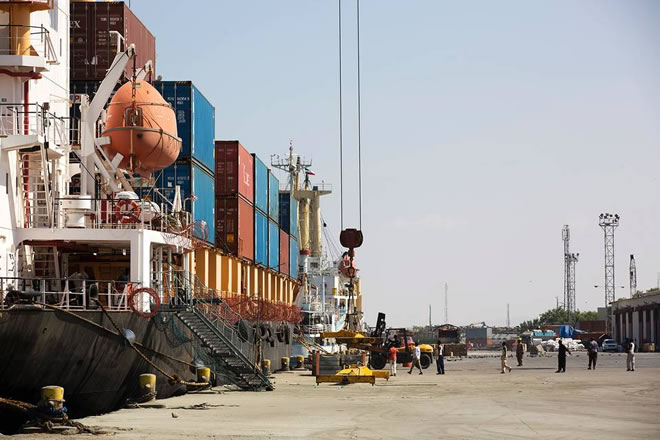Plans to develop ports in Somalia’s two breakaway regions could change the face of the Horn of Africa.

By Neil Ford
Thursday May 25, 2017

Puntland and Somaliland have managed to isolate themselves to some extent from the quarter century of chaos that has engulfed rump-Somalia. Yet their lack of sovereign status has deterred investment and more rapid economic development.
However, both governments are now banking on the development of modern container ports to kick start more rapid growth. According to sources in Puntland, the government in close to reaching an agreement with DP World to develop a multi-purpose port at Bosaso, although President Abdiweli Mohamed Ali says there are still some details to finalise.
Investment of $336m has been mooted, which would include the construction of a 450m quay, an unspecified number of berths, container storage capacity and container handling equipment. In common with other similar projects on the continent, the state will retain ownership of the port but it will be operated under a 30 year concession.
The investment will be made in two phases. Next year will be the 20thanniversary of Puntland declaring itself independent.
Somaliland President Ahmed Mohamed Mohamoud Silanyo said: “It will bring back and highlight the commercial position and importance of the Port of Berbera as a Red Sea gateway for the Middle East and Africa.” Bolloré Africa Logistics had previously indicated its interest in developing Berbera and held talks with President Silanyo.
The group chairman and chief executive of DP World, Sultan Ahmed bin Sulayem, added: “This is part of our vision to act as an enabler of trade and to facilitate growth by helping African countries develop their infrastructure that connects them to global markets. These are exciting times for our industry and for Africa…Investment in this natural deepwater port and free zone will act as a catalyst for the growth of the country and the region’s economy.”
Both projects seem to have been mooted now because of the fall in the incidence of Somali piracy over several years. In addition, the Suez Canal Authority has introduced a number of discounted rates for different classes of vessel. The two factors are encouraging more ships to travel between Asia and the Mediterranean Basin via the Red Sea and Suez Canal, rather than taking the more circuitous route around the Cape of Good Hope.
Located on the approaches to the Red Sea, Bosaso and Berbera are well placed to take advantage of this trade. The domestic trade needs of both semi-autonomous states are very limited but their respective ports can attract transhipment business, with containers offloaded here to be transferred on to other vessels.
Why DP World?
It is interesting that it is DP World that is focusing on Bosaso and Berbera, as the company already operates a container port in neighbouring Djibouti. It could simply be keen to stymie any competition to Djibouti before it emerges but the Dubai-based firm could be eager to provide more transhipment options and additional capacity in anticipation of rising trade volumes.
Berbera in particular is well placed to serve landlocked Ethiopia. Although Djibouti’s position as the main entrepôt for Ethiopia has been strengthened by the construction of the new railway between the port and Addis Ababa, the government of Somaliland is confident that it can take a share of the business.
It estimates that it can target about a third of the population of Ethiopia if the planned highway between Berbera and Ethiopia is actually completed. The UAE has also signed an agreement to develop a military base just outside Berbera, probably for use in the Yemen War. The two Berbera projects are starting to draw people and investment into the city.